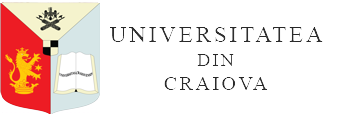ASPECTS OF GANDHI'S INTERPRETATION OF BHAGAVAD GITA
DOI:
https://doi.org/10.52846/afucv.v1i53.69Keywords:
Gandhi, Bhagavad Gita, Atman, Moksha, Gita, Sattva, Tamas, Rajas, Desai, Mahabarata, SatyagrahaAbstract
The intent of our investigation is to expose and interpret aspects of Gandhi’s meditation on the Bhagavad Gita. One of the aims of Gandhi’s meditation on the Gita consists in searching for the foundations of the right moral thought and for the foundations of the right individual education. The revelation of the Gita is for the individual, among other things, a journey towards the discovery of himself and of his position in the reality; it is a journey towards the discovery of the possible developments of his own soul.
The foundation of the right individual education has immediate social aspects: the right education proves to represent the very foundation of the right political action. In Gandhi’s view, the political doctrine and the political action ought to have as their own foundation the teachings of the Gita. The revelation of the Gita gives the individual the right moral education and the right moral foundation: it gives the knowledge of truth, of God, of reality, and of the individual nature. Through and thanks to the teachings of the Gita, the individual’s education finds the due foundation. The correct moral education is the basis of a right political and social order; it represents the basis for the dialogue between individuals and for the peaceful coexistence between individuals. The morally right order of the society is the consequence of the morally right order of the individual.
Thus, the meditation on the Gita constitutes the foundation of the possibility of a right political strategy. Thanks to the education obtained through the meditation on the Gita, the individual is able to understand the right moral behaviour: this has an immediate effect on the structure and organisation of the whole society. In order that the society can be morally changed, the individual ought to develop his moral constitution in a right way. There may not be any right political programme without a previous individual right moral education.
The analysis of the position of individuals within the reality and the investigation on the individual soul constitution enables the individual to reach an appropriate strategy for a right moral education. Since individuals consist of the three gunas — sattva, rajas, and tamas —, individuals are, as such, complex entities. Individuals are, moreover, dynamic entities: the development of the three gunas inside the individual soul, the relationships between the gunas in the soul, and the prevalence of a guna over the other gunas within the souls are not given once and for all; they depend on the education and on the life choices of the individuals. The prevalence of a guna over the other ones is due to the free decision of the individual; depending on how the individual decides to orientate his own life and depending on which parts of the soul the individual decides to cultivate, the soul of the individual will take a corresponding direction and will have a corresponding development. The responsibility for the development of one’s one life belongs to the individual.
The corporeal dimension puts precise limits on the individual capacity of self-improvement within the corporeal life. Individuals ought to accept the limits due to their bodily dimension. At the same time, individuals ought to steadily try to improve themselves by promoting the virtues connected to sattva; the being-limited of individuals does not imply an absence of responsibility of the individuals as regards the moral value of their own actions. Individuals have the responsibility for being aware of their own constitution and for fighting against the limitations of their own condition.
The fact that individuals are constitutively imperfect entails that individuals ought to educate themselves continuously; the individual ought to reach a moral foundation and ought to steadily pay attention to the stability of his own character.
The main works analysed throughout our inquiry are Gandhi’s Discourses on the “Gita”, contained in The Collected Works of
Mahatma Gandhi, XXXII (November 1926 – January 1927), pp. 94–376, and the work of Mahadev Desai, The Gospel of selfless action or The Gita according to Gandhi.


